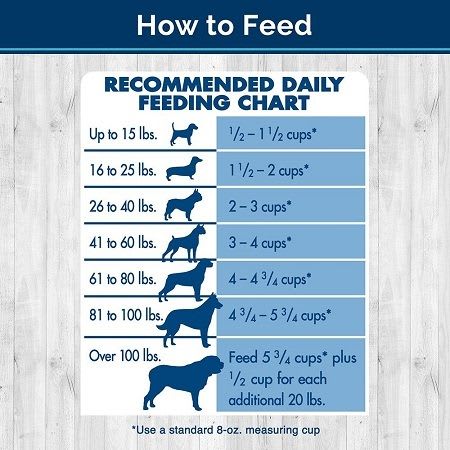
One of the most important ways to keep your dog healthy is to ensure they are receiving the right amount of high-quality dog food. If your dog isn't getting enough or is getting too much food it can have detrimental effects on their health.
Why Does The Amount of Food Matter?
If you feed your dog too little, they can suffer from nutritional deficiencies. Alternatively,if your dog is eating too much food, it will eventually result in obesity and its related health issues, like:
- Musculoskeletal problems like osteoarthritis, cruciate ligament ruptures, and intervertebral disk disease
- Congestive heart failure
- Labored breathing
- Cushing’s disease
- Skin disorders
- Some types of cancer
- Shortened life span
- Reduced quality of life
Giving your dog the right amount of quality dog food can help support your pet’s overall health and keep them feeling their best.
What Is The Right Amount?
You need to account for several factors when determining exactly how much your dog should be eating. The correct meal size depends on factors like:
- Type of food
- Number of meals
- Body weight
- Metabolic rate
- Amount of exercise
Determining the right nutritional requirements for your dog can be tricky. Talk to your Wake Forest vets today so they can help you determine how much food your dog should be getting.

Consider Your Dogs Lifestyle
Now that you understand what your dog should ideally receive, it is important to take into account the lifestyle your dog lives when determining the amount of food they need.
For example, if I had a relatively inactive dog who tends to gain weight easily, I might start with a little less food than the table recommends. On the other hand, if my dog was a pooch who never sits still, I would feed a little more.
Monitor Your Dogs Weight Changes
THere's no such thing as a perfect science when it comes to dogs and their feeding requirements. It's important to keep an eye on them and track their weight fluctuations. If they are gaining weight then perhaps consider reducing the amount of food and vice versa.
However, if your dog is losing or gaining weight rapidly, you should contact your vet because there may be underlying health concerns that need to be addressed. Our Wake Forest veterinarians can get to the root of the issue in no time.
Note: The advice provided in this post is intended for informational purposes and does not constitute medical advice regarding pets. For an accurate diagnosis of your pet's condition, please make an appointment with your vet.
